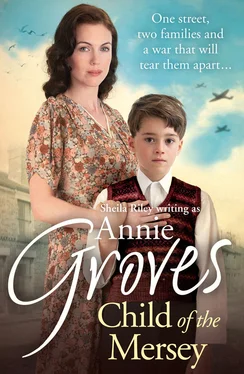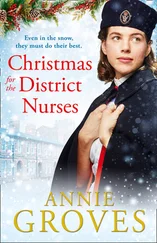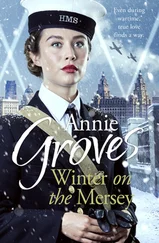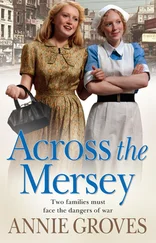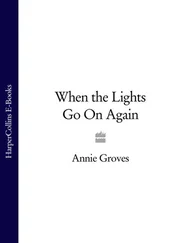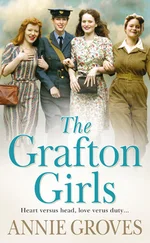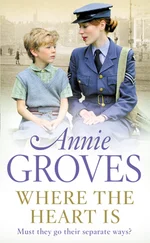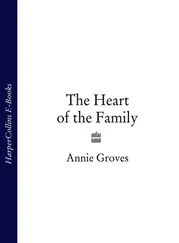Sonny Callaghan walked with a sombre, somewhat rolling gait to stand behind the horse-drawn hearse bearing his wife’s coffin, accompanied on either side by his young sons, Jack and Danny. Dolly suspected that Sonny Callaghan had taken more than a little Dutch courage to get him this far. Kitty followed a few steps behind, holding on to Dolly’s arm for support. Dolly handed the youngest of the Callaghan children to her daughter Rita. The small dockside street was filled with friends and neighbours, as well as a smattering of family from the little Irish village of Cashalree, ‘over the water’, where Sonny had married the beautiful and much-missed Ellen.
As the grieving procession moved off, Rita took the baby indoors out of the way. She was going to look after him until the chief mourners returned from burying his mother at Ford Cemetery. The boy did not have a name yet.
‘Everyone came out to support them,’ Dolly said later when the mourners had all gone home and she was back in her own house. She sighed and looked around the table to her loving family, all seated and quiet for once.
Pop, her husband of seventeen years, nodded in agreement. Rita, their eldest, was a good girl; unbidden she rose now and went to make a pot of tea. Then there were the two boys, fourteen-year-old Frank, handsome like Pop, and twelve-year-old Eddy – the quiet one; she did not know who he took after considering that most of the family could talk the hind legs off a donkey. The youngest were ten-year-old dance-mad Nancy, followed by Sarah, who at six had a wise head on young shoulders. Now, Dolly thought, her family would grow even bigger because of the pact she and Ellen had made all those years ago.
‘I’ll look out for yours if you look out for mine,’ they had promised each other, and Dolly would do it gladly; anything to stop Ellen’s family from being split up and the children put into a home. She would not let that happen for all the ships on the Mersey. Her family were the beat of her huge, generous heart. There was always room for a few more.
‘The whole street turned out except the widow, Mrs Delaney, I noticed,’ said Dolly, ‘and who would wonder?’ She nodded at nobody in particular. ‘Ellen’s death will surely take the shine off the professional widow now.’
‘Do you think so, Doll?’ Pop, always the peacemaker, smiled at his wife.
‘I’ve never seen a woman more eager to get into widow’s weeds – her husband’s been dead donkey’s years, and that woman is still parading around in her black. She reminds me of old Queen Victoria.’ There was a small silence, everybody still touched by the sadness of the funeral earlier. Pop thought of how he would feel if it was his own beloved Dolly that he’d had to bury that morning. He pushed the thought away, and was glad of the distraction when Rita brought in a tray of cups, saucers, a pot of tea and a huge plate of freshly made ham sandwiches.
‘Aunty Ellen will know she left her family in good hands with us,’ Rita said, patting her mother’s shoulder. Dolly nodded. Rita always knew the right thing to say; she was going to make a smashing nurse. ‘But,’ Rita added with a half-smile, ‘calling Mrs Delaney names won’t bring her back.’
‘I know, and I’m sorry, but I can’t believe that old crow didn’t come to pay her respects. Just makes me mad, that’s all.’ Dolly sniffed into her handkerchief. ‘Poor Ellen didn’t deserve to go the way she did.’ She got up from the table. ‘The one thing I can do for her now is look after her family, and I will.’
‘We know.’ Pop rose, too, put his arm around his wife’s shoulders and gave a sad smile.
‘I will make sure her little ones know they can come here anytime.’
‘They know that already, Mam.’ Rita passed her mother a cup of tea. ‘I’ve put a little drop of something in that to help you sleep.’
‘We will not be starting that caper,’ Dolly said indignantly. ‘Strong drink has never passed my lips before, except at Christmas, and it won’t do now.’ Rita took the cup from her mam while, out of Dolly’s sight, Pop passed his daughter the bottle of whiskey, surmising what the eye did not see the heart could never grieve over. Unbeknown to Dolly, she had drunk umpteen cups of tea today laced with a slosh of the old country.
‘Poor Kitty,’ Dolly lamented. ‘She’s tied to that house as sure as any married woman – and she’s not even old enough to leave school.’
PART ONE
‘Kit, it wasn’t me! Honest to God.’ Eight-year-old Tommy Callaghan looked over to where his older brother Danny was just sloping off towards the back door. ‘It wasn’t my fault. So you needn’t look at me like that.’
‘Don’t be so impudent, Tommy. I’ll see to you later.’ Kitty stood near the shelf in the kitchen with a half-empty tea caddy in her hand. She shook it a few times and peered inside. Then, after wiping it on her pinny, she replaced the lid and put it back on the shelf. Turning, she watched in frustration as Danny slipped smartly out of the door, quickly followed down the back yard by their father.
Tommy, however, was not so fast, which enabled Kitty to grip the collar of his shirt, almost choking him in the process of dragging him back into the kitchen. She never raised a hand to Tommy, as a rule. If she stared at him long enough he always told her the truth. However, now, finding half the housekeeping money gone, she was sorely tempted to knock him into the middle of next week.
‘Aar ’ey, Kit, you know I’ve got a sore throat,’ Tommy complained, giving his collar an exaggerated tug. His face was the picture of self-pity.
‘Come here, you little horror. You don’t have to sound so hard done by. You are going nowhere.’ Pots hissed and bubbled on the rickety stove and the heat of the kitchen combined with the sizzling late afternoon sun creeping into the house was making it oppressive, but Kitty wasn’t going to let that stop her getting her hands on Tommy. She stooped low so as to be eye-to-eye with him and said very slowly, ‘Now tell me, Tommy, who took the money out of the tin? The truth. I’ll wait, but not for too long.’
Her brother Jack had given her the housekeeping money only this morning and now half of it was gone. It would be a toss-up between paying the rent and buying food, and as the rent man was now calling on a daily basis because they were three weeks in arrears, she really didn’t have a choice.
Kitty’s thoughts were racing ahead now. Losing half the housekeeping money meant she would have to go over the road and try to persuade Mrs Kennedy to let her have a bit longer to pay her ‘tick’ bill. Either that or grovel for the lend of a few bob to pay the bill, and then there would be interest to pay on top, and everybody knew that Winnie Kennedy was the last woman on earth you’d want to borrow money off. Her exorbitant repayment rates were not the only reason either. Kitty surmised she took great delight in giving sanctimonious lectures to poor unfortunate women who could not pay – in front of other customers, too.
Kitty felt so sorry for the recipients of these self-righteous sermons, vowing never to get into that situation if she could help it. However, her own credit bill had accumulated to a frightening amount because of Nancy Feeny’s wedding. Kitty had offered to make the three-tiered cake as a wedding present, and it had seemed a good idea at the time. She hoped it would go some way to showing the Feeny family, Aunty Dolly especially, how grateful she was for all their help over the years.
Aunty Doll had been good to her and Tommy, who had been a newborn baby when their mother died, practically raising them in those early years while they were still grieving. She would not dream of asking Aunty Doll to pay for the cake now.
Читать дальше
